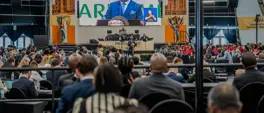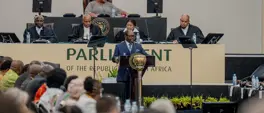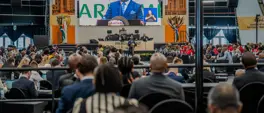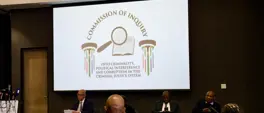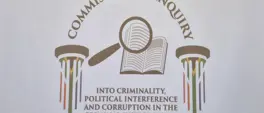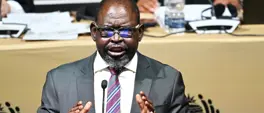Technological innovation research wins 2025 Nobel Prize in Economics
Rafiq Wagiet
13 October 2025 | 19:03Joel Mokyr, Philippe Aghion and Peter Howitt's groundbreaking research focused on how innovation and “creative destruction” fuel economic growth.
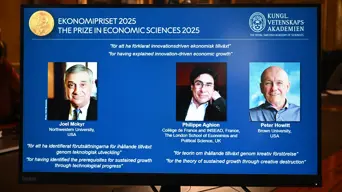
A screen displays the portraits of the 2025 prize winners (L-R) Joel Mokyr, Philippe Aghion and Peter Howitt, during the announcement of the winners of the 2025 Nobel Prize in Economics, the Sveriges Riksbank Prize in Economic Sciences in Memory of Alfred Nobel, at the Royal Swedish Academy of Sciences in Stockholm, Sweden, on October 13, 2025. Picture: Jonathan Nackstrand/AFP
The 2025 Nobel Prize in Economics was awarded to Joel Mokyr, Philippe Aghion, and Peter Howitt for their pioneering research on how innovation and “creative destruction” drive economic growth.
Their work highlights how new technologies replace old ones, raising living standards and improving health and quality of life worldwide.
The Royal Swedish Academy of Sciences decided to award one half to Mokyr 'for having identified the prerequisites for sustained growth through technological progress' and the other half jointly to Aghion and Howitt 'for the theory of sustained growth through creative destruction.'
BREAKING NEWS
— The Nobel Prize (@NobelPrize) October 13, 2025
The Royal Swedish Academy of Sciences has decided to award the 2025 Sveriges Riksbank Prize in Economic Sciences in Memory of Alfred Nobel to Joel Mokyr, Philippe Aghion and Peter Howitt “for having explained innovation-driven economic growth” with one half to Mokyr… pic.twitter.com/ZRKq0Nz4g7
Speaking to Stephen Grootes on The Money Show, Adrian Saville, Professor of Economics and Finance at Gordon Institute of Business Science says their research is essentially looking for the source of economic growth.
"That begs a question, what is it that causes, not just growth, but sustained growth. And enter innovation, technology which are able to double-down on what you already have and produce not only more things, but more things, and new things differently, so that you have this cocktail of innovation that's technologically fed and it translates into well-being of a society," says Saville.
"What's so valuable here is that you've got an economic historian being awarded half of the prize, and this means we're gathering up evidence, rather than just ideas," adds Saville.
Listen to the interview in the audio player below.
Get the whole picture 💡
Take a look at the topic timeline for all related articles.



